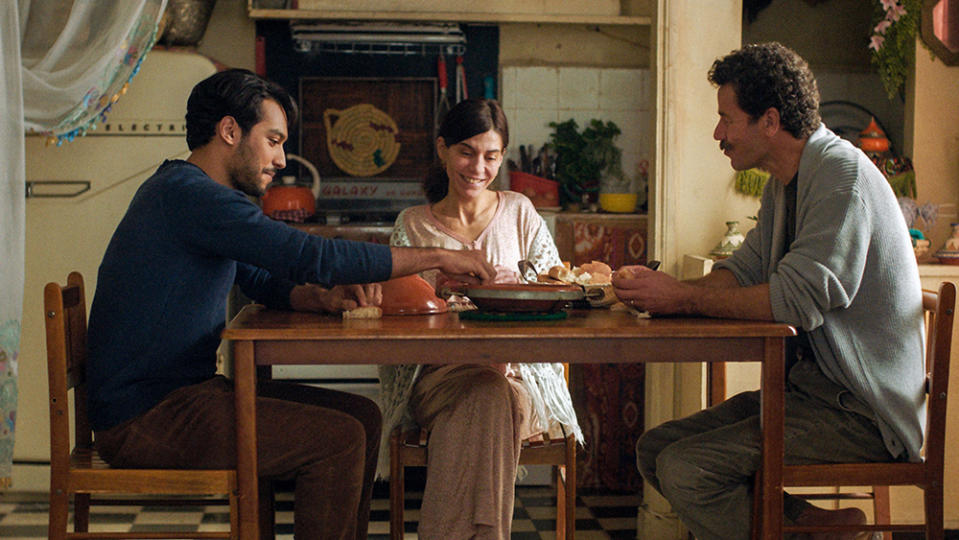‘We Need People Who Are Taking Risks’: Cairo Industry Head Reem Allam on Supporting Bold, Boundary-Pushing Arab Filmmakers

The fifth edition of the Cairo Film Festival’s industry arm, Cairo Industry Days, will look to further cement its growing reputation as one of the Arab film world’s premier industry platforms when it runs from Nov. 17 – 22.
Launched by former festival president Mohamed Hefzy, the Egyptian producer who stepped down from his post earlier this year, the event has quickly taken a place alongside the Marrakech Film Festival’s Atlas Workshops and the Red Sea Film Festival’s Souk as key meeting points connecting Arab and international filmmakers.
More from Variety
Cairo Film Festival Kicks Off With New Leadership Team at Helm of Arab Film Showcase
Cairo Festival Director Amir Ramses on Competing With Rival Arab Fests for Region's Top Talent
Ahmad Abdalla's '19B' Explores Clash of Cultures in Cairo as City Modernizes
“It’s both challenging but also exciting,” said newly appointed industry head Reem Allam, about taking up her post along with incoming festival director Amir Ramses and new Cairo Film Connection manager Lynda Belkhiria. “We’re not bound by traditional ways of doing things. There’s some freedom in that.”
This year’s event will include a wide-ranging program of masterclasses, conversations, workshops and panel discussions featuring award-winning filmmakers and industry experts from around the world. Running alongside it is the Cairo Film Connection co-production market, which showcases 15 projects from 10 countries across North Africa and the Middle East.
Among the highlights are masterclasses with Hungarian director Béla Tarr, French filmmaker Mathieu Kassovitz and Japanese director Naomi Kawase, who will lead the international competition jury; and conversations with Egyptian screen star Lebleba, who will receive a Golden Pyramid Lifetime Achievement Award at the festival, and Egyptian filmmaker Kamla Abu Zekry, who will be honored with the Faten Hamama Excellence Award.
Along with those conversations, the festival has expanded its program of workshops for Egyptian filmmakers, offering the local industry practical tools that delve deeper into craft than the public sessions. “We want Industry Days to not just be a place where young filmmakers hear an inspiring talk for two hours, but to actually be a place where they can develop their skills,” Allam said.
The multi-day workshops include an immersive, five-day session with American cinematographer Irvin Liu focused on the art and craft of storytelling and a 10-day workshop led by Tarr. The director will offer one-on-one mentoring to 10 up-and-coming Egyptian filmmakers, who will use the course to develop and shoot a scene under the Hungarian screen legend’s tutelage. “It’s another level of giving developmental opportunities for filmmakers to develop their skills and find a cinematic voice and get inspired by alternative ways of filmmaking,” said Allam.
Another industry session will look at the growing move toward eco-friendly film production through a distinctly regional lens, with several filmmakers appearing in conversation alongside Bassam Alasad, the founder of Jordan’s Greener Screen initiative. The panel will examine how film productions in the Middle East and North Africa can be more environmentally friendly and utilize sustainable practices. Of Greener Screen, Allam noted that it’s “inspiring to see an Arab initiative encouraging Arab producers to be more green.”
Meanwhile Cairo Industry Days will shine a spotlight on the growing Saudi Arabian film industry, which has been bolstered by a raft of public and private investment. “It’s a booming market,” said Allam, citing the Red Sea Film Festival’s $14 million fund for projects by Arab and African directors as an example of how the kingdom has become a driving force for production not only in the host country, but across the region. The Cairo panel will examine ways that “we as an Arab market can all benefit,” she added.
It’s been a strong year for Arab cinema, with filmmakers from the region occupying coveted slots at top-shelf festivals including Cannes, Venice and Toronto. Perhaps just as important as the international spotlight is the growing number of Arab films tackling taboo subjects.

Moroccan director-writer Maryam Touzani’s “The Blue Caftan,” for example, which won the FIPRESCI prize in Cannes, follows a closeted tailor in the Casablanca medina. Algerian director Mounia Meddour’s uplifting drama “Houria” (pictured, top), which will have its Middle East premiere in Cairo, is the story of a gifted dancer who dreams of joining the Algerian National Ballet until a violent assault shatters that dream — and offers her an unexpected pathway to rebuilding her life.
They’re exactly the sorts of daring stories from Arab filmmakers that Cairo Industry Days is hoping to support. “We need people who are taking risks,” said Allam. “I really hope that we continue to push boundaries.”
The Cairo Intl. Film Festival runs Nov. 13 – 22.
Best of Variety
Sign up for Variety’s Newsletter. For the latest news, follow us on Facebook, Twitter, and Instagram.

 Yahoo Movies
Yahoo Movies 
